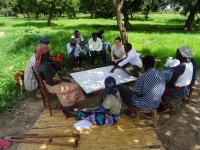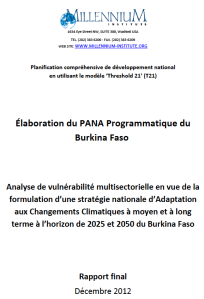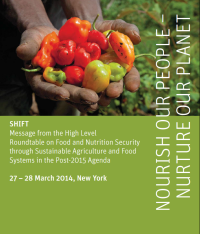Rapid testing of systems thinking facilitation techniques for farming communities in Cambodia
| The three goals of this project are: 1) Develop a training plan and materials that will enable the communications officer stationed at WWF Cambodia in Kratie province to lead a training exercise with Ministry of Environment and WWF staff in facilitating systems thinking discussions with farming communities in contexts of low literacy, poverty and high reliance on natural systems and 2) Develop a training for Ministry of Environment and WWF colleagues in Cambodia so that in a 2 hr slot, they are introduced to the basics in using systems thinking approaches with farming communities in contexts of low literacy, poverty and high reliance on natural systems. 3) Support WWF communications officer in delivering training and facilitating discussions with farming communities in Kratie province. |  |
Pilot study on systems modeling for market transformation
National strategy for adaptation to climate change in Burkina Faso
Systems mapping and modeling workshops
| The complexity of food and other socio-ecological systems makes policy analysis, governance design, evaluation, and learning challenging. These challenges suggest that a systems approach might be of particular value in understanding and shaping desired system outcomes. We facilitate qualitative systems mapping workshops as well as quantitative system dynamics modeling training, both with a special emphasis on multi-stakeholder involvement. Past projects include: Capacity building workshops in system dynamics and Threshold 21 modeling for Millennium Institute (millennium-institute.org). Systems mapping workshops for the United Nations Industrial Development Organization and in various sub Saharan African countries. |  |



